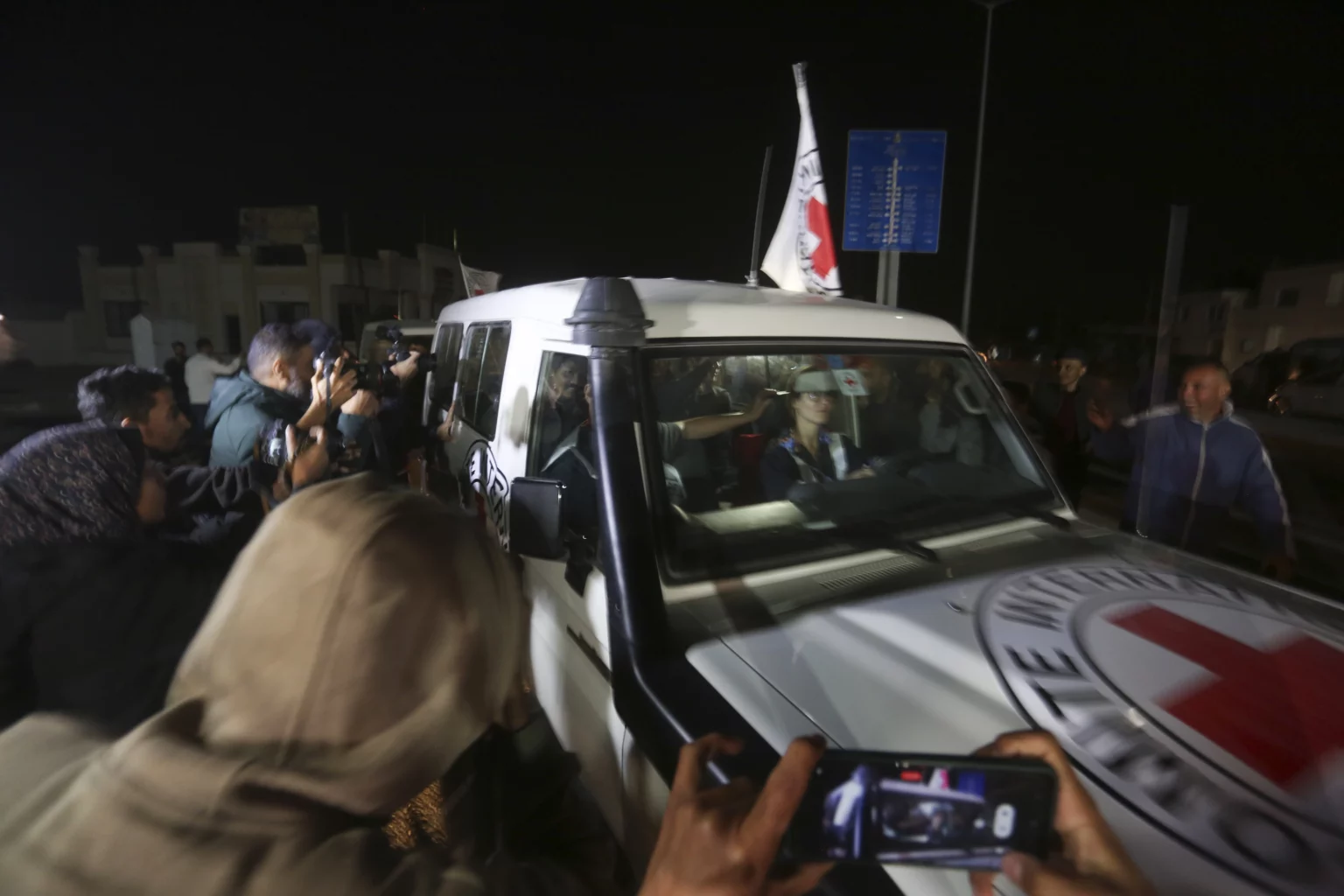A new swap of hostages held by Hamas for Palestinian prisoners in Israel got underway late Wednesday in the final hours of the current Gaza truce as international mediators raced to extend the halt of Israel’s air and ground offensive to allow further exchanges.
Ten Israeli hostages released Wednesday under a truce agreement pausing fighting in the Gaza Strip between Israel and Hamas arrived back in Israel, the Israel prime minister’s office said early Thursday, among them five women, three children, and two 18-year-old men.
Ten Israelis including one Dutch, one American, and three German dual nationals as well as two Russians and four Thais have been released by Hamas in Gaza, mediator Qatar announced early on Thursday.
“10 Israeli citizens are being released as part of the agreement, including five dual citizens: – A Dutch dual citizen, who is also a minor – three German dual citizens – one American dual citizen,” Qatar Foreign Ministry Spokesman Majed al-Ansari said, adding that two Russian citizens and four Thais were also released.
He added that 30 Palestinians had been released from Israeli prisons in exchange.
“Qatar remains hopeful that the progress made in recent days can be sustained, and a further extension to the humanitarian pause agreement can be reached,” al-Ansari said in a statement.
Negotiators were working down to the wire to hammer out details for a further extension of the truce beyond its deadline of early Thursday. The talks appear to be growing tougher as most of the women and children held by Hamas are freed, and the militants are expected to seek greater releases in return for freeing men and soldiers.
International pressure has mounted for the ceasefire to continue as long as possible after nearly eight weeks of Israeli bombardment and a ground campaign in Gaza that has killed thousands of Palestinians, uprooted three-quarters of the population of 2.3 million and led to a humanitarian crisis. Israel has welcomed the release of dozens of hostages in recent days and says it will maintain the truce if Hamas keeps freeing captives.
Still, Prime Minister Benjamin Netanyahu underscored on Wednesday that Israel will resume its campaign to eliminate Hamas, which has ruled Gaza for 16 years and orchestrated the deadly attack on Israel that triggered the war, “After this phase of returning our abductees is exhausted, will Israel return to fighting? So my answer is an unequivocal yes,” he said.
“There is no way we are not going back to fighting until the end.”
He spoke ahead of a visit to the region planned this week by US Secretary of State Antony Blinken to press for further extensions of the truce and hostage releases.
In the West Bank, Israeli troops killed two Palestinian boys — an 8-year-old and a 15-year-old — during a raid on the town of Jenin, Palestinian health officials said. Security footage showed a group of boys in the street who started to run, except for one who fell to the ground, bleeding.
The Israeli military said its troops fired on people who threw explosives at them but did not specify it was referring to the boys, who are not seen throwing anything. Separately, the military said its troops killed two Islamic Jihad militants during the raid.
So far, the Israeli onslaught in Gaza seems to have had little effect on Hamas’ rule, evidenced by its ability to conduct complex negotiations, enforce the ceasefire among other armed groups, and orchestrate the release of hostages. Hamas leaders, including Yehya Sinwar, have likely relocated to the south.
With Israeli troops holding much of northern Gaza, a ground invasion south will likely bring an escalating cost in Palestinian lives and destruction.
Most of Gaza’s population is now crammed into the south.
The truce has brought them relief from bombardment, but the days of calm have been taken up in a frenzied rush to obtain supplies to feed their families as aid enters in greater, but still insufficient, amounts.
The United States, Israel’s main ally, has shown greater reticence over the impact of the war in Gaza. The Biden administration has told Israel that if it launches an offensive in the south, it must operate with far greater precision.




